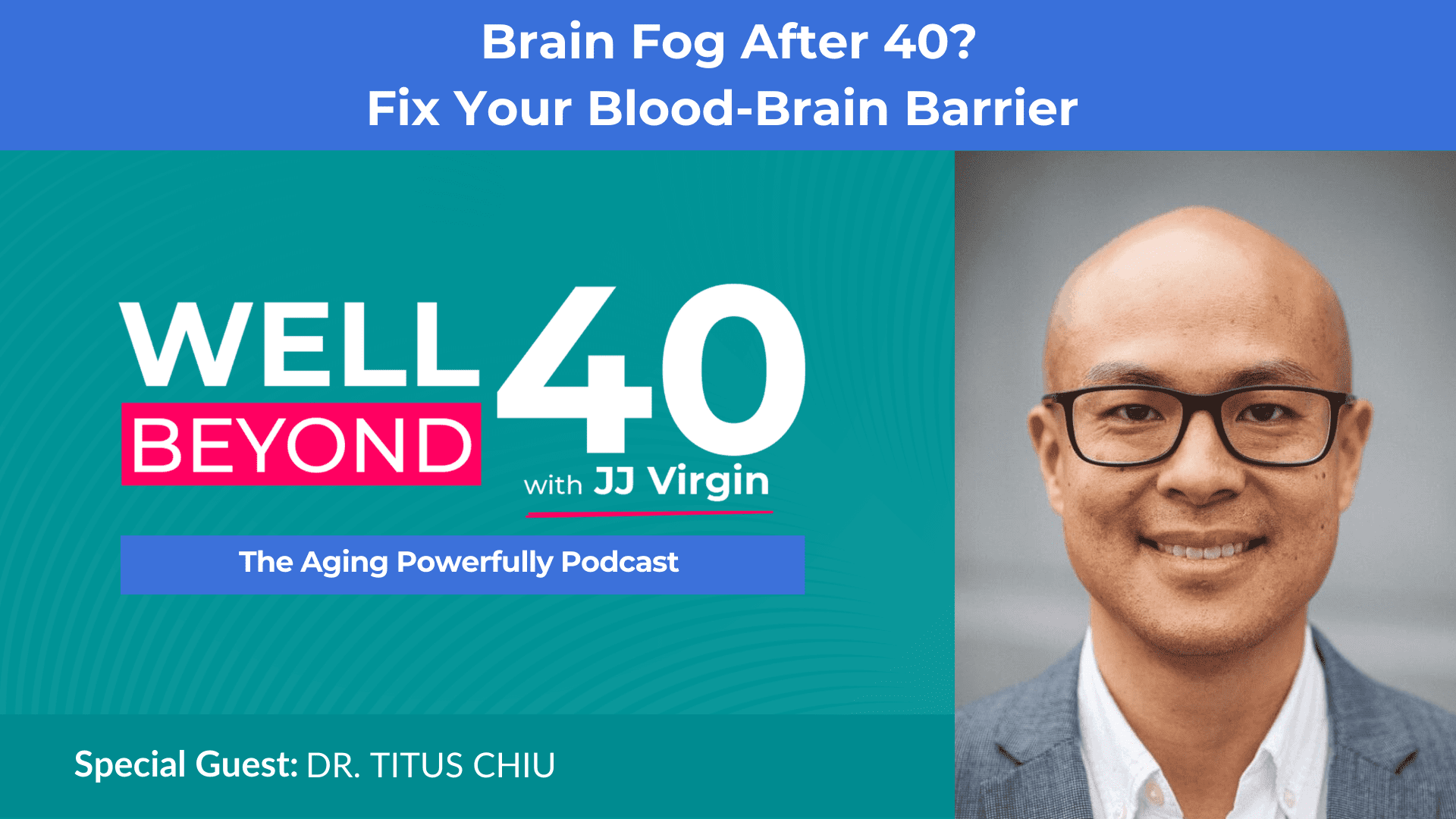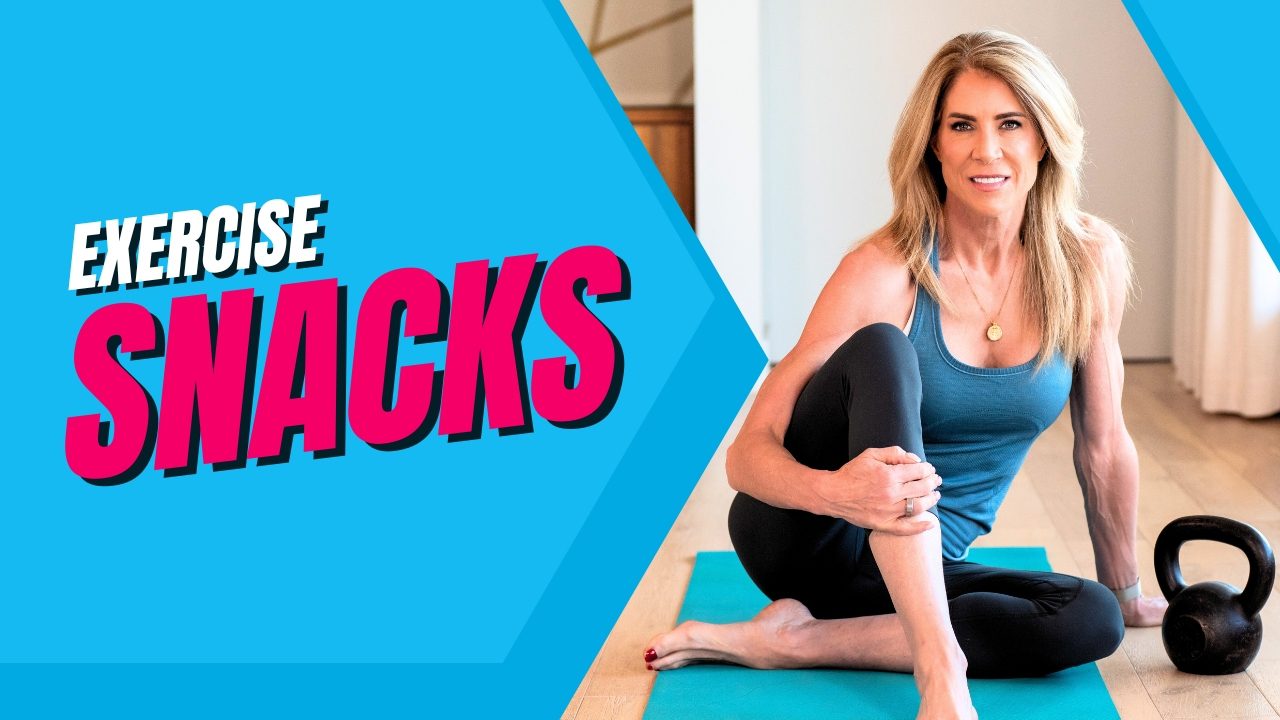Transform Your Skin with These Simple Food Swaps
Are you tired of searching for the fountain of youth at Sephora? The real secret to younger-looking skin is found in your kitchen! In this episode, we delve into the dietary changes that can help you achieve that glowing complexion. Find out what daily ingredient accelerates skin aging through a process called glycation, damaging your collagen and elastin, leading to wrinkles and sagging. Plus, learn about a fantastic alternative sweetener, which won’t spike your insulin levels and even has prebiotic benefits!
We also discuss the hidden dangers of seed oils, which ones to avoid, and why they wreak havoc on your skin and overall health. Learn why it’s essential to balance your intake of omegas and which oils to avoid to reduce inflammation and promote clear, healthy skin. We’ll explore healthier alternatives that boast anti-inflammatory properties and help maintain a robust skin barrier.
I also share my personal struggle with acne and what I eliminated to transform my skin. This food can increase insulin levels and trigger inflammation, leading to various skin issues. Find easy swaps that will make a huge difference. And for those enjoying a glass of wine, I’ve got tips on choosing lower-alcohol, additive-free options to avoid dehydrating your skin. Plus, I’ll share my favorite supplements to support skin health.
Don’t miss this episode for more tips, personal insights, and transformative advice on achieving radiant skin from within!
Timestamps
00:01:02- The Secret to Younger-Looking Skin: Foods to Avoid
00:01:16- The Impact of Sugar on Skin Health
00:02:06- Allulose: A Healthier Sugar Alternative
00:03:29- The Dangers of Damaged Oils and Seed Oils
00:05:45- Balancing Omega 6 and Omega 3 Fatty Acids
00:06:12- The Benefits of GLA for Skin Health
00:07:59- The Impact of Dairy on Skin
00:09:14- Alcohol and Its Effects on Skin
00:10:25- Free Guide: Inner Wellness, Outer Beauty
00:10:42- Supplements for Skin Health: Enzymes and Collagen
Resources Mentioned in this episode
JJ Virgin Anti-Aging Cheat Sheet
7-Day Eat Protein First Challenge
Reignite Wellness™ Collagen Peptides Powder
Reignite Wellness™ Protein First Enzymes
Study: Systemic evening primrose oil improves the biophysical skin parameters of healthy adults
Episode Sponsors:
Try Timeline. Use code JJ10 for 10% off all products
Try Qualia risk free for up to 100 days and code VIRGINWELLNESS for an additional 15% off
The secret to younger looking skin isn’t at Sephora or even the dermatologist’s office, it’s at the end of your fork. Let’s talk about the foods you need to get rid of in your diet so you can turn back the clock and get glowing again. So the first one, you knew I was going to say this, sugar. But Why is sugar so bad for your skin?
Well, the deal is, It accelerates skin aging because sugar binds to protein in your skin through a process called glycation. And you know what it forms? AGEs Advanced glycation end products. These ages damage your collagen and elastin. These are the proteins that keep your skin firm and elastic, and that means wrinkles and sagging.
Next thing that sugar does is create inflammation. A high sugar intake can cause a spike in insulin levels, which may lead to increased inflammation And exacerbate problems like acne, and rosacea, and eczema. Plus, sugar impacts your skin texture and your appearance. Excessive sugar can make the skin more vulnerable to sun damage too, by degrading the natural antioxidant defenses.
But I have something amazing for you. If you need a little sweet, what you’re going to do is swap out the sugar for something called Allulose. Now, here’s what’s super cool about allulose. It’s known as a rare sugar, comes from things like dried fruit and maple, but it doesn’t have any calories, so it isn’t really absorbed.
Now, it doesn’t also impact your blood sugar insulin levels. So it’s great for you if you’re insulin resistant or diabetic, or you want to become more insulin sensitive, which is all of us. It also can aid in weight management and calorie reduction, because again, it’s got 0. 4 calories per gram. It’s like, you know.
And it lowers the blood sugar response to a meal and it raises GLP 1 so you actually feel fuller after you eat it. It has a glycemic index of basically nothing. Again, not only does it not raise blood sugar, in the right amounts it can actually lower blood sugar. And it also doesn’t promote tooth decay or cavities because it doesn’t ferment in the mouth like other sugars.
It’s very similar in taste and texture to sugar. However, it’s not quite as sweet. So you might need to use just a little bit more. Plus it can help with metabolic health. It may reduce liver fat accumulation and improve your lipid profile. And it acts as a prebiotic. So it can be good for the growth of beneficial gut bacteria.
Now, if you’ve tried some of these sweeteners out there, you’re like, Oh my gosh, they make me bloated or they give me diarrhea. This one doesn’t do any of that either. So it’s got all of these good things. I think of it as a therapeutic sweetener. And none of the bad. Next step. You probably heard about seed oils and I’m going to instead talk about bad oils or damaged oils.
Because here’s the thing. It’s actually what’s been done to the oils and the balance of them. What you want to avoid is a high omega 6, to low omega 3 balance. Now, we need both omega 6s and omega 3s in our diet, they’re essential fatty acids, but too much omega 6 can promote inflammation and contribute to chronic disease.
Again, too much omega 6 can make you more inflammatory, which can lead to things like arthritis and heart disease, but also the bad processing can oxidize them as well, which Also creates problems. Now, one of the other things you’ll see with a lot of these vegetable oils is that they come from genetically modified crops.
And a lot of times the challenge, they’ve modified them to be able to withstand pesticides. So they use more pesticides and toxins love fat. So you’ve got little Toxin sponges. So you’ve got these oils that could be oxidized, damaged, have more pesticides in them. Very problematic. So what do you want to avoid?
The things you want to avoid are these big bottles of plastic oils in the light, in the stores, like that big bottle of corn oil that’s high in inflammatory omega 6s, generally. Corn is genetically modified. Ditto with canola oil, tends to be highly processed and might contain GMOs as well. Same with soybean oil.
Another one, soybean is one of the most genetically modified crops. And then safflower oil, another one that’s high in omega 6s and GMOs. And sunflower oil, finally too. Cottonseed oil, another one. These oils, again, are the ones that tend to be genetically processed, industrialized, heavily processed, so that they tend to be oxidized.
Beyond just the inflammatory part, they can also contribute to acne and oily skin by encouraging more oil production, which can lead to clogged pores and to acne. And of course, again, the inflammation, I think, is the biggest issue that we have here because You want that balance. Remember, you don’t want to be totally anti inflammatory, but you need the balance between the two.
And so many of the processed foods are so, so, so high in omega 6s, which is probably what has pulled us, pushed us out of balance so much. So again, what I really focus on is creating the right ratio. There’s a test called an omega quant test. Test which looks at your omega 6 to omega 3 ratio. It also looks at your fatty acid levels in general and it’s a great test to do really inexpensive and you can do it at home.
And that will show you where you’re at. If you find that you’ve got a big high six ratio, you’ll want to push more of the threes for a bit to get you back in balance. But there are some sixes like almonds and sesame seeds and eggs and walnuts. And something called GLA or gamma linolenic acid, which is another essential omega 6 fatty acid, which actually is used to help support good skin health because it reduces inflammation.
It can help with things like eczema and psoriasis. It can help with Actually balance hormones and regulate your menstrual cycle and ease PMS and help with heart health and cholesterol levels and reducing inflammation in the blood. It’s probably something you’ve never heard of because it’s not in things we would normally eat.
It’s an evening primrose oil, borage oil, or black currant oil. There was actually a study done in 2005 and it was published in the International Journal of Cosmetic Science that found that Evening primrose oil positively affects skin health in adults. They took evening primrose oil for 12 weeks and after that time skin was more moisturized, less dry, stretchier, firmer, less tired looking, and smoother.
So here’s what I’ll tell you. Back when I was struggling a lot with my skin, before I discovered that dairy was causing a lot of the problems, and if I’m working with someone who’s got any skin issues, GLA is what I’ll look at adding in. What you want to take out are these damaged industrialized seed oils and swap it out for things like extra virgin olive oil.
Now, I especially love extra virgin olive oil because it’s got these polyphenols that are antioxidants that help protect the skin from environmental damage and can also reduce the signs of aging plus olive oil can help with your skin barrier because it’s got these healthy fats that improve the skin’s barrier function, which then help retain moisture and protect against irritants.
And it’s also anti inflammatory. Extra virgin olive oil can help reduce inflammation and calm the skin and get rid of some of that puffiness. Now, I alluded to this already. Man, I struggled with acne for so much of my life and did not know this. And it’s one of the things that kind of got me into nutrition is my skin.
Dairy was a huge, Trigger for me, and it’s a huge trigger for a lot of people, because dairy can increase insulin levels and something called insulin like growth factor. And these can boost your oil production and make acne worse. Dairy can trigger an inflammatory response. It can potentially lead to a bunch of different skin conditions, but really specifically acne.
So there was a study in 2018, it was a meta analysis and a systematic review was published in Nutrients and it found that consuming any dairy, including full fat and low fat options, was linked to higher odds of developing acne. Because what I found in looking at food sensitivity tests was that the top things that people tend to react to are dairy and eggs. And that, especially when I start to look at skin, the first thing that I always do is pull out dairy products. And what I have people do is just pull them out and swap out. It’s so easy now because there’s so many different options out there for different types of yogurts and milks. So if you’re doing dairy milks, you can swap it out, or dairy yogurt, swap them out for nut yogurts, nut milks, just like that.
Watch those to make sure they’re not putting in damaged oils and sweeteners. Next one. Alcohol. So what does alcohol do to your skin? Well, first of all, it’s a diuretic, so it actually can dehydrate your skin. A diuretic encourages your body to get rid of water, so it can lead to dehydration and then that dehydrated skin looks dull and flaky and dry.
It also impairs your skin barrier function, it weakens your skin barrier function, which makes it more susceptible to things like bacterial infections and environmental pollutants and signs of aging. Plus it promotes inflammation and oxidative stress. It increases the inflammatory response and produces free radicals, which accelerates your skin aging and exacerbates inflammatory skin conditions.
So if you’re going to drink, go for dry farm wines. Now, the difference with dry farm wines is that they are lower in alcohol. They don’t have all of the extra. It turns out in the United States in the wine industry, they can put a whole lot of additives. I think it’s over a hundred different ones and not have to claim them.
So you don’t have those additives. They’re clean wines. They’re lab tested and they’re lower in alcohol. So if you are drinking, stick with dry farm wines. And if you are suffering with any rosacea or any of these types of things, try some sparkling water for a while. Rotate it out. Now, if you want even more tips, I have a free guide that I made for you.
It is called Inner Wellness, Outer Beauty, Your Anti Aging Cheat Sheet. And I put it at jjvirgin. com forward slash DEXA. Anti aging, and in it I talk about skin care, I talk about food, stress management, supplements, and more. Now, speaking of supplements, there are two that I’d love to call out right now, because these make such a difference.
One you probably wouldn’t have thought about for skin, and that is enzymes. Now, enzymes are going to do a couple different things. They’re going to improve your nutrient absorption, And they’re going to help break down nutrients in the diet more efficiently. And that means that your skin is going to receive these nutrients, vital vitamins and minerals for health and repair.
Plus they’re going to aid in digestion, which again, reduces inflammation. And I’ll tell you what was interesting. One of the things that I noticed when I first started taking enzymes was that they immediately, I had a little bit of rosacea and acne that as I started taking my protein first enzymes went away.
Now, the acne, Other one is collagen. So collagen is a primary component of the skin that provides structure and elasticity. And supplementing with collagen can help your skin firmness, and your skin texture, and hydration. Collagen can help Increase your skin’s hydration level so it’s smoother, it’s more supple, and it can help your skin heal and repair, so that could help reduce the appearance of fine lines and wrinkles.
And there was a 2014 randomized clinical trial that was published in the International Journal of Cosmetic Science that looked at how taking collagen peptide supplements affect the skin. So they had 32 healthy people try different combinations of supplements for 12 weeks. So first group didn’t take anything.
Second group took 3 grams of collagen peptides. The third group took three grams of collagen peptides and 500 milligrams of vitamin C, and the fourth group only took 500 milligrams of vitamin C. And during this time, they measured hydration, water loss, and skin elasticity using different tools. So here’s what they found out.
The second and third group had better skin hydration and elasticity compared to the first group, which did nothing. And then the third group, that was the group that did both the peptides and vitamin C. Had similar improvements to the second group. So that means that maybe the vitamin C didn’t help that much, but here’s the thing, it was a wimpy dose of vitamin C.
Let’s be honest. I would like to see two grams here. But what the study did suggest was that taking collagen peptide supplements can make your skin more hydrated and elastic, which is great for your skin health. I take collagen for my skin and for my muscles now, and my joints. Anti aging isn’t just about younger looking skin, right?
You want to make sure that you’re turning back the clock on the inside too, so that you can age more powerfully. I feel decades younger now, thanks to the habits I’ve developed over time. And I share it all in this next video on my best anti aging advice that I have for you in my sixties, things I wish I knew and had started sooner.
So check it out.
Hide Transcript

 Subscribe to our show
Subscribe to our show 



